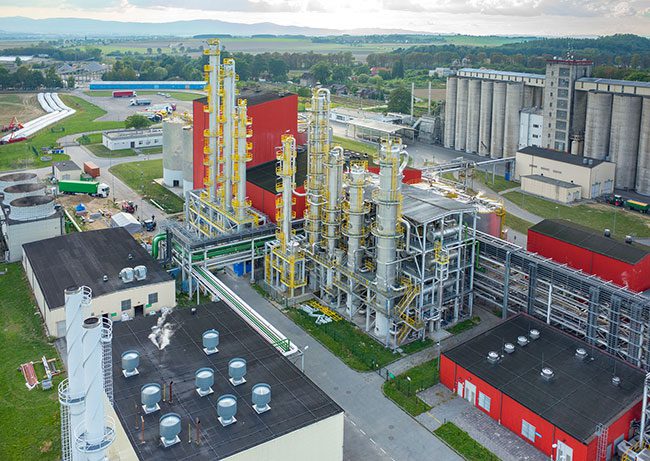What Are BioFuel Conveyor Systems?

Many utility providers are now faced with government regulations forcing them to move toward more environmentally friendly systems over the next three to five years. Utility companies are searching for ways to reduce their footprint without reducing the efficiency of their power production operations. One way to achieve this is through the use of biomass related fuels.
What is Biomass Material?
In the search for sustainable resources, biomass has become a clear winner for many utility providers. The word biomass is used to refer to organic materials which can be broken down and used as fuel to create energy. This includes wood chips, forest debris, old crops, manure and more. These are materials that would otherwise be considered waste from clearing forests, construction sites and agricultural activities. Traditionally this waste was dumped into landfills where it breaks down on its own. We now know that it can be salvaged and burned to produce energy while reducing CO2 emissions. It is considered sustainable because we know that agricultural activities and construction are ongoing efforts needed to sustain life which will never be free of waste themselves. The next question is how to get biomass material to the plant.
The Industrial Conveyor System
Industrial conveyor systems are used to transport biomass to power plants for processing. Most often belt and chain conveyors are used because they are reliable and able to withstand heavy usage. In order for a power plant to produce the same level of energy as a traditional coal plant, it needs a constant stream of biomass to be delivered, typically at a rate of one truck load every 5-6 minutes. Conveyors are capable of delivering large quantities of raw material on a constant basis for improved efficiency.
Choosing the Right Conveyor
Since biomass material is comprised of so many different waste products, it is common to see utility companies focus on using only one form of biomass. For instance, some companies use waste lumber and wood chips exclusively to power their plant. On the other hand, some use a variety of municipal waste to get the job done. The type of conveyor system you need depends on the type of material being transported at each stage of your process.
Conveyor System Stages
The biomass energy process is generally broken down into several stages. Unlike coal, it is difficult to know the quality of the raw material that you are receiving up front. For instance, if you are receiving construction waste, you can expect to see a handful of nails and other unusable items hidden amongst the lumber. Your first stage of conveyors will usually include large chain conveyors that will not be easily damaged or slowed down by unwieldy pieces of waste that contain contaminants. The use of a magnetic sorter can help remove any harmful material before it can head to a grinder to be broken down.
Once your raw material has been sorted and is free from contaminants, it can move forward onto a smaller, faster moving series of conveyors to take it to the combustion chamber. These usually include belt conveyors that can carry a large amount of material very quickly once it has been broken down into small enough pieces to be burned efficiently. The belt system provides a solid surface for carrying wood chips or chopped up municipal waste without losing any material through the cracks.
The average biomass conveyor system must be able to operate 24 hours a day in order to provide enough power to offset the change from coal or natural gases. Fortunately, belt and chain conveyors are up to the challenge and can be used to move any of the common forms of biomass material from beginning to end.
In the future we can expect more and more of our utilities to come from renewable biomass resources. Whether you are moving wood chips or municipal waste, you need the support of a reliable conveyor system to deliver all the fuel you need. Swanton Weld has the facilities and tools necessary to build belt and chain conveyors to any scale for biomass facilities. To learn more about custom conveyor fabrication for your company, contact Swanton Welding today!

